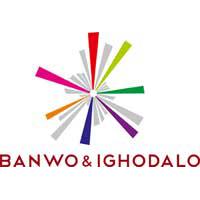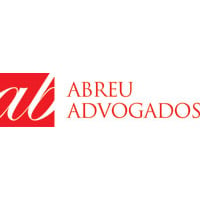

Partner, head of the Paris energy, infrastructure, project and asset finance group | White & Case






Paule Biensan
Partner, head of the Paris energy, infrastructure, project and asset finance group | White & Case
Number of years practice: 22
Principal practice areas: Project finance
Languages spoken: French and English
What is the geographical focus of your practice in Africa?
Pan-African practice with a focus on North and Francophone Africa, West Africa, East Africa and Central Africa.
Please describe the most important matters you have worked on in the African market in the last two years, including your role and the significance of the matter (if any) to the development of business and law.
White & Case is advising the consortium composed of Nareva, a Morocco-based energy company that is wholly owned by the SNI, the holding company of King Mohammed VI and ENEL, the Italian global manufacturer and distributor of electricity and gas. Siemens is a potential turbine provider on this mandate. Our team is advising the sponsors with respect to the 850 MW integrated wind energy programme in Morocco. The project was launched by the Office National d’Eau et d’Electricité (ONEE) comprises of five on-shore wind farms, and is a major wind renewables project for Morocco.
Our team has been chosen by a consortium composed of strong, domestic, and global players in this sector to lead work on this high-level mandate. This demonstrates how our clients doing business in Morocco are happy to rely on our deep experience in all of the key aspects of completing major cross-border projects and project financings in this geography. Ours is one of the most experienced teams when it comes to major mandates in Francophone Africa generally, and Morocco in particular.
Additionally, White & Case advised BMCE Bank, as lender to the Société d’Eau Dessalée d’Agadir and Aman El Baraka Company on the financing, design, construction and operation of a mutualised desalination plant to provide drinking and irrigation water to the Souss Massa region in Morocco.
Established under the 54-05 Moroccan law related to delegated contract management, it is the biggest mutualised desalination project in the world for the production of drinking and irrigation water. It will be able to produce 150,000 m3 of drinking water per day, which could be extended to 200,000 m3, and 200,000 m3 of irrigation water per day. Initially built to produce only drinking water, the mutualised plant will also be used to produce water to irrigate 15,600 hectares of farmland located in the region.
This project is a key piece in the Moroccan water programme to reinforce the drinkable water supply in Agadir, support agriculture and tourism, and helping to conserve local aquifers.
White & Case also advised BMCE Bank in 2014 on the financing of the initial project.
We are also advising on Ngoulmendjim and Dibwangui hydro power projects in Gabon, a combined cycle thermal power plant project Cameroon, the development, construction and operation of a hydro power project in Cameroon and the review of the legal documentation relating to the securitisation of the Ivory Coast electricity sector’s export receivables.
Our work on these matters demonstrates the high volume of repeat business we earn thanks to our projects experience in energy and natural resources in Africa.
What differentiates your practice from that of other private practice lawyers?
The fact that I lead a team that is integrated, gathering all requisite expertise and is capable also of working with other groups with different expertise. These include M&A, capital markets, restructurings and more.
Why has Africa been a particularly strong focus for you?
It’s in the DNA of our firm to work in emerging countries. We have been involved in work on the African continent for decades. It’s even
truer when analysing the potentials and needs of the continent. Everything has to be done and it’s very exciting for a business lawyer to adapt to these jurisdictions proven technics to help in structuring projects to international standards.
What changes have you seen in the appetite for Africa-based ventures and investments over the last five years?
We [have] noted that a number of equity funds are now involved on African matters. While the risk perception is still high, it tends now to be better understood and mitigated.
Are there any aspects of the African legal market that you would like to see change?
In general, I would welcome a more active role of the banking community in Africa to help in the structuring of debt products.
What megatrends do you think will shape the African market over the coming five years? How (if at all) will these trends affect your practice?
Megatrends will in reality be towards completion of a number of small projects, easier to close than mega projects, and that all together, will drive the continent to more efficiency in the infrastructure and energy segments.